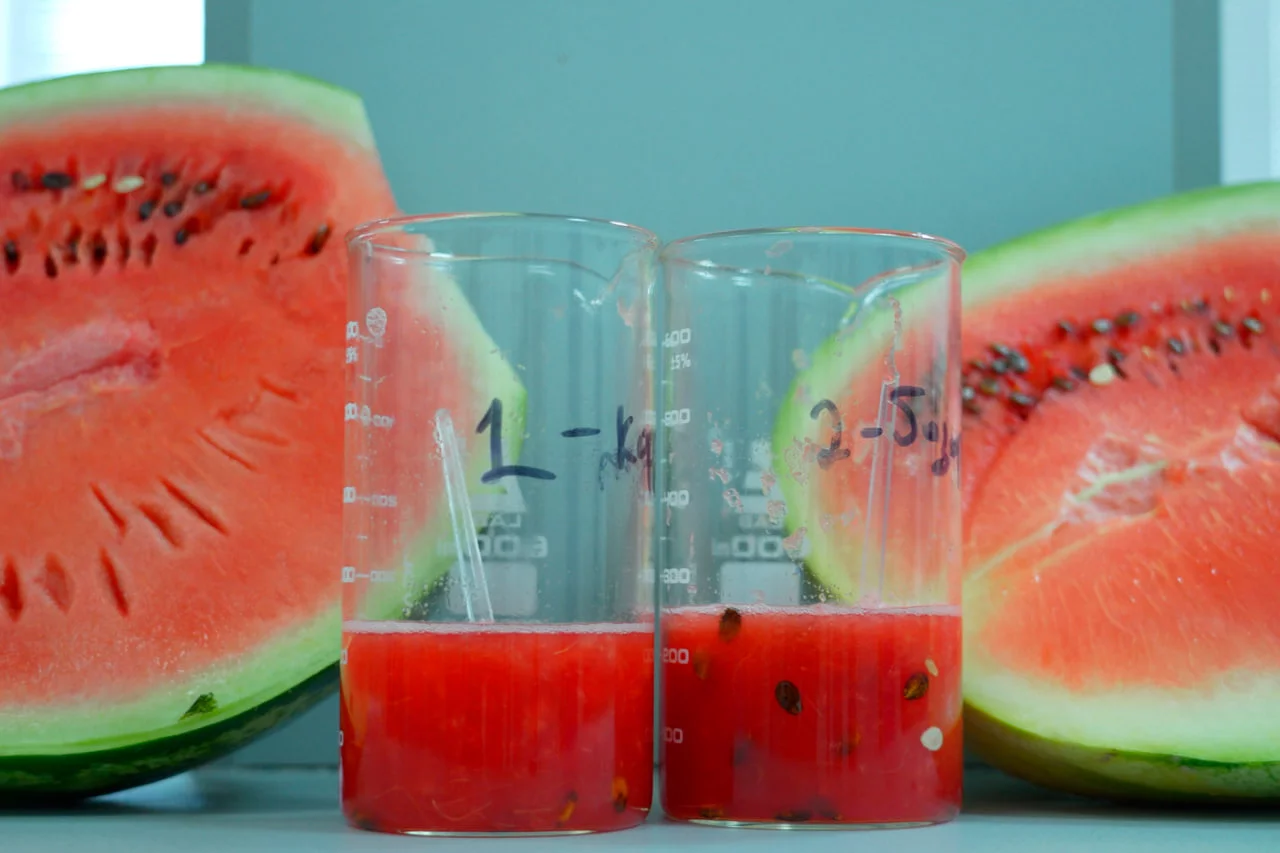Are current watermelons safe? Experts are warning about nitrates

With the arrival of the summer season, watermelons — known for their unique taste — appear in markets, carts, and supermarket counters. In the heat, they quench thirst and are considered an invaluable summer delicacy. The taste of watermelon reminds each of us of our childhood. However, recently, alarming videos about the increased nitrate levels in watermelons have been circulating on social media. This naturally causes concern among consumers.
So, how true are these claims? Is it natural for watermelons to contain nitrates? How can they be detected? Most importantly, are today’s watermelons safe to eat?
What is nitrate and where does it come from?
Nitrates are salts of nitric acid, and they naturally exist in small quantities in fruits and vegetables. Just as plants need nitrogen to grow, nitrogen-based mineral fertilizers are used in agriculture to boost yield. Improper or excessive use of these fertilizers can lead to an increase in nitrate content in produce.
However, it’s also important to note that nitrates are not always harmful. If their level does not exceed the acceptable limit, they pose no danger to human health. Thus, it's incorrect to automatically label nitrates as harmful.
Laboratory experiment: are watermelons safe?
Kun.uz journalists approached the laboratory of the Committee on Sanitary-Epidemiological Peace and Public Health to clarify the issue. They submitted two watermelon samples purchased from a local bazaar and a supermarket in Tashkent for analysis.
According to lab technician Odil Usmonov, testing only the nitrate level in a watermelon takes about 30 minutes. However, if the analysis also needs to detect other harmful substances — heavy metals, pesticides, or pathogenic bacteria — it can take one or two days.
Experts emphasize that the nitrate level in watermelon should not exceed 60 milligrams per kilogram. To be precise, 60 mg/kg is the recommended limit.
Test results showed that one watermelon contained 12.6 mg/kg and the other 10 mg/kg of nitrates. This means they are completely safe for consumption.
Misconceptions on social media
In recent weeks, some individuals have shared videos on social media showing them measuring nitrate levels in watermelons using handheld devices and reporting high values. In response, the leading specialist of the Sanitary-Epidemiological Committee, Shohruhmirzo Erkinov, expressed his view.
He stated that such widely-used nitrate meters must be calibrated before use. Otherwise, their readings may be inaccurate.
“Such tests are reliable only when conducted by trained laboratory professionals,” the expert noted.
How to choose a good watermelon?
Erkinov advised paying attention to a few key points when choosing a watermelon:
First, among two watermelons of the same size, pick the heavier one. This indicates higher water content.
Second, the rind should not have cracks, damage, or dry spots. Dehydrated watermelons lose flavor and may harbor microorganisms.
Another important factor is the color. If the watermelon looks unnaturally dark or shiny, it may indicate the presence of artificial substances.
How do nitrates affect health?
When consumed in excess, nitrates can convert into nitrites in the body. Nitrites bind with hemoglobin in the blood, reducing its ability to carry oxygen. This can be particularly dangerous for children, the elderly, and people with cardiovascular conditions.
But as noted earlier, if the nitrate level in watermelon is within safe limits, it poses no health risks.
Conclusion: Can we eat watermelon?
According to experts, most watermelons currently sold in the markets are safe. The most important factor is to be mindful of where and in what condition you are purchasing the product.
If a watermelon has been lab-tested or comes from a reliable source, it can be consumed safely.
So, there’s no need to give up on watermelon. Just be careful in selection and consumption — that's enough.
On hot summer days, watermelon is not only delicious but also a natural remedy against dehydration and thirst. Just choose wisely, wash thoroughly, and enjoy — no need for unnecessary panic.
Read “Zamin” on Telegram!
Ctrl
Enter
Found a mistake?
Select the phrase and press Ctrl+Enter 




















